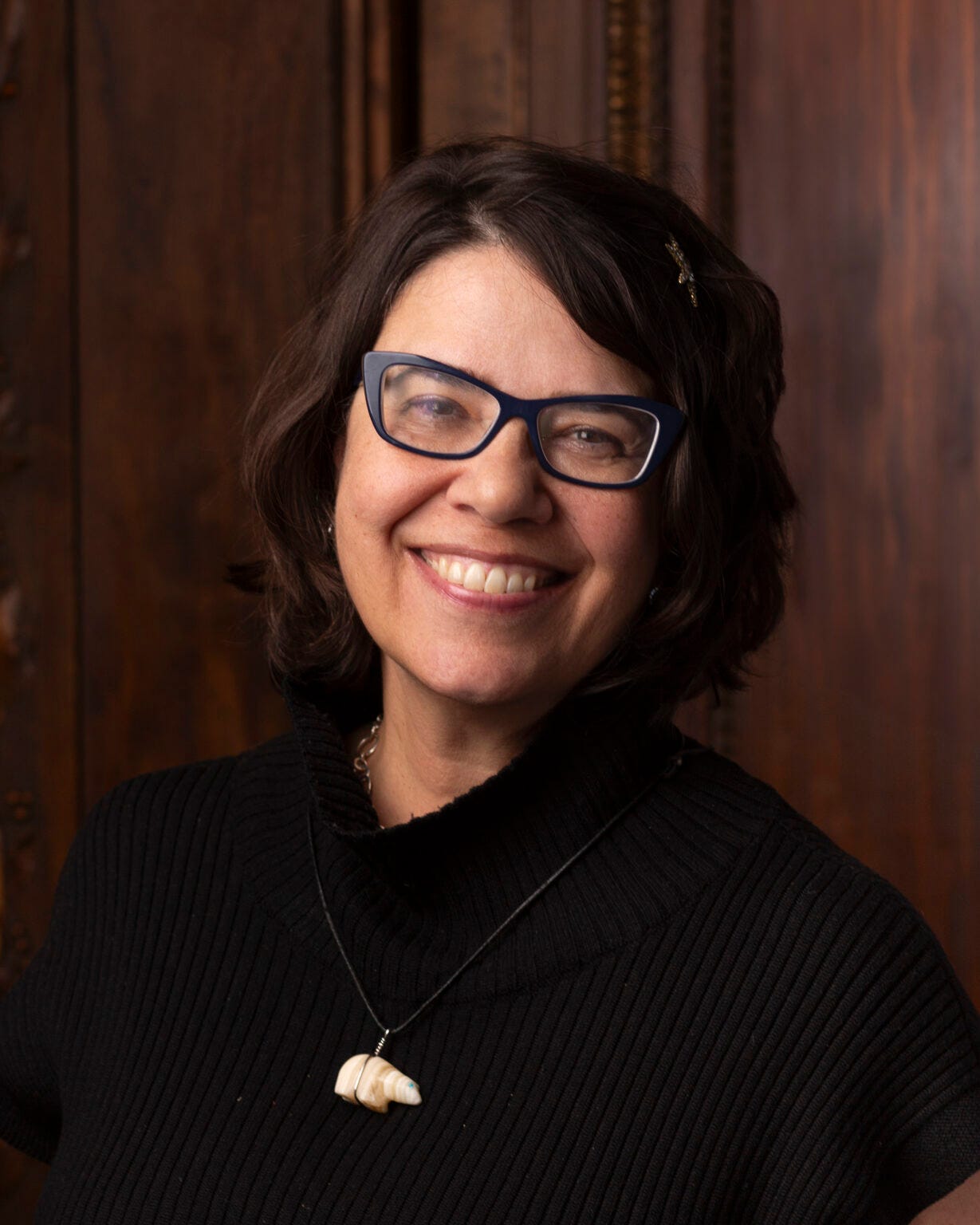✍️Science Writing News Roundup #237
Usha Lee McFarling Named Director of the Knight Science Journalism Program + How to Steer Scientist Sources Away from Jargon + Do AI Detection Tools Work?
Usha Lee McFarling Named Director of the Knight Science Journalism Program: The Knight Science Journalism Program (KSJ) at MIT has announced that Usha Lee McFarling, national science correspondent for STAT and former KSJ fellow, will be joining the team in August as their next director. As director, McFarling will play a central role in helping to manage KSJ — an elite mid-career fellowship program that brings prominent science journalists from around the world for 10 months of study and intellectual exploration at MIT, Harvard University, and other institutions in the Boston area. (Photo: Usha Lee McFarling via KSJ at MIT)
Welcome! You are reading the Science Writing News Roundup, a newsletter for science writers. You can also read this edition online. Did someone forward you this newsletter? Sign up here.
👩💻Articles
Scientific evidence belongs in any beat: Grasping scientific evidence is fundamental to tackling virtually every major challenge society faces—climate change, food insecurity, health disparities, the explosion of AI, and more. Journalists have a responsibility to inform their readers of how that evidence plays into the issues impacting their daily lives.
Come Again? How to Steer Scientist Sources Away from Jargon. Purging complex jargon from conversations is a crucial part of covering science: essential for ensuring that the writer—and by extension, the reader—grasps the topic at hand.
AI is creeping into every space of our lives, experts caution. From viral shrimp messiahs to fake news popes, AI is warping how we see the world — and what we believe.
Do AI Detection Tools Work? Journalists must decipher real from fake at the speed of breaking news. But they may not be able to count on technology to solve problems of its own creation.
More articles 👉Bonus content for monthly supporters.
🛞Resources
Reporting and Resources on Mental Well-Being in the U.S. This May, in honor of Mental Health Awareness Month, the Pulitzer Center amplifies reporting that interrogates the critical intersections of mental health and technology, climate change, welfare systems, and migration.
U.S. Graduate Program Financial Aid Information for International Students: The Open Notebook has gathered information about financial aid options that exist for international students attending graduate science journalism and science communications programs in the U.S.
3 common freelance conundrums — and how to handle them. From pitching into an apparent void to dealing with “scope creep” — or when an assignment involves a lot more than what was originally agreed upon, without added compensation — freelance writers deal with some particular challenges that staff journalists typically do not.
Covering the ongoing bird flu story as it unfolds. This strain of H5N1 is here to stay, it’s evolving, and we don’t have the information we need to catch bird flu early if it spreads human-to-human. It is already having economic effects and has killed pets and one person — and more stories need to be told.
Opportunities
The AAAS Kavli Science Journalism Awards 2025 contest is now open for submissions! Enter your best science reporting by August 1.
2025 David Perlman Virtual Mentoring Program: This summer, NASW is again offering its virtual summer mentoring program for graduate and undergraduate students. Student applications are open until May 23.
More opportunities and calls for pitches 👉 Bonus content for monthly supporters.
📺News
Richard Harris elected CASW president: The Council for the Advancement of Science Writing has elected Richard Harris as its next president. Harris was a science correspondent at NPR for 35 years (1986-2021), and author of the 2017 book Rigor Mortis, which explores rigor and reproducibility in biomedical science.
Jackson Ryan named “Journalist in Residence” at HITS: Australian science journalist Jackson Ryan is the 13th “Journalist in Residence” at the Heidelberg Institute for Theoretical Studies (HITS), having joined the institute end of April 2025.
Newmark J-School Announces Inaugural “How to Cover Aging” Awardees. The Craig Newmark Graduate School of Journalism at CUNY has selected 10 working journalists from across North America to participate in its first “How to Cover Aging” workshop to be held in June 2025.
Science Writers & Communicators of Canada (SWCC) announced that over 60 titles entered the SWCC Book Awards competition for 2024.
🖥Videos & Podcasts
🗓Events
Science Reporting Navigator Webinar (May 21, 2025)
Reporting on Food, Waste and Climate in America: Five MIT journalism fellows share their experience reporting on climate solutions in the food, waste and agriculture sector around the U.S. (May 30, 2025)
More events 👉Bonus content for monthly supporters.
📌Jobs
Thanks for reading! Subscribe for free to receive the next post in your inbox:
Worried you missed something? See previous posts here. What would you like to see in the newsletter? Please send me your suggestions: sciencewriting@substack.com



